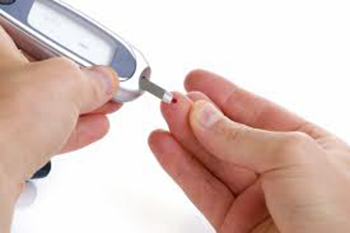A new study in the journal Diabetes Care found gastric bypass surgery can have a lasting effect in reversing pancreas damage brought about by Type 2 diabetes. It’s further evidence that bypass surgery produces dramatic results unmet by medication alone. NBC’s Robert Bazell reports.
By Robert Bazell, Chief science and medical correspondent, NBC News
As weight-loss surgery has become more common over the last several years, doctors have had tantalizing clues that certain procedures bring dramatic reduction in type 2 diabetes — beyond getting their ability to reduce the patient’s weight.
The surgery appears to have stopped damage to the pancreas, reversing the cause of diabetes as well as alleviating the symptoms, the researchers reported in the journal Diabetes Care.
A year ago researchers at the Cleveland Clinic carried out a careful trial of 150 patients with diabetes that was not being adequately controlled. One-third got gastric bypass, one-third were given a device similar to a lap band that reduces stomach volume, and the rest received the best drug therapies. The goal was to reduce the participants’ blood sugar to below normal levels.
In the patients who got the bypass surgery the results were dramatic.
“It’s pretty amazing,” bariatric surgeon Dr. Philip Schauer of the Cleveland Clinic said at the time. “Many of our patients, even within hours of the operation, their blood sugar becomes normal … even before they’ve lost any weight at all.”
The big question was, would the results last? In a one-year follow-up study, published in the journal Diabetes Care, the answer is yes. “Gastric bypass surgery seems to uniquely restore pancreatic beta-cell function, presumably by targeting belly fat and modifying the hormones in the gastrointestinal tract,” Dr. Sangeeta Kashyap, an endocrinologist with the Cleveland Clinic, said in a statement. “Gastric bypass remarkably targets belly fat where hormones that are toxic to the body develop.”
Marla Evans a former Type 2 diabetic says within a few days of having gastric bypass surgery her diabetes was much better and within a month or two after surgery she had no trace of diabetes and felt “fabulous emotionally and physically.”
The pancreas makes insulin, which in turn control blood sugar. People with diabetes can’t control their blood sugar as well, and the excess sugar damages organs such as the eyes and kidneys. The pancreas worked again in patients who had the surgery, Kashyap says. “This is something that is very novel and something we don’t see with medications or with insulin,” she said.
A gastric bypass procedure makes the stomach smaller by dividing it into two sections and connects a portion of the small intestine to one of the stomach pouches, reducing the amount of calories absorbed by the body. Curiously, another surgical procedure called sleeve gastrectomy, which also reduced stomach volume, caused the patients to lose just as much weight, but it did not bring the same dramatic reduction in diabetes.
The doctors are not sure how the bypass surgery changes the hormone balance in the body to cure the diabetes. And they hope someday they might achieve the same effect without the surgery.
The Cleveland Clinic doctors want to treat more patients before they are confident they have a cure. An estimated 26 million Americans have type 2 diabetes and it has been called one of the fastest-spreading epidemic ever.
Dr. Sangeeta Kashyap, an endocrinologist at the Cleveland Clinic, says their studies show that bypassing the intestine has powerful benefits on peoples’ diabetes and metabolism.
If it continues to be successful, the main issue will be whether major surgery costing $25,000 — and often not covered by insurance — is too drastic a treatment. In response any doctors point out that uncontrolled diabetes often leads to kidney problems, heart attacks, strokes, amputations and death. For many diabetic patients medical costs far exceed $25,000. So, if the diabetes cannot be controlled in other ways, the surgery may become far more common.
B.N

